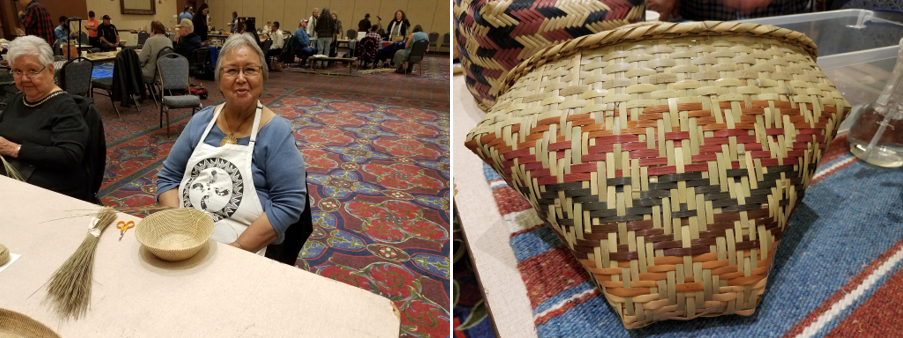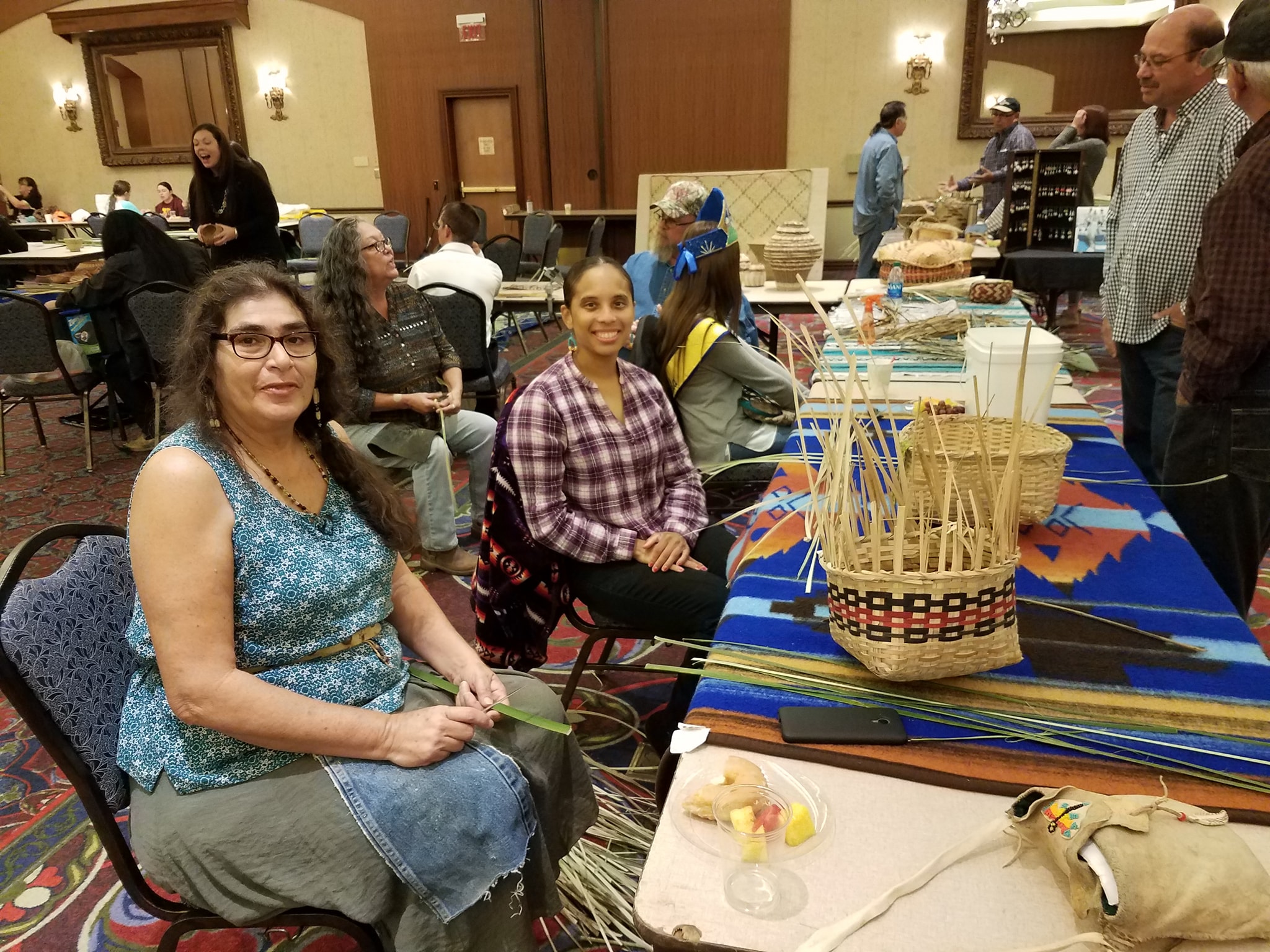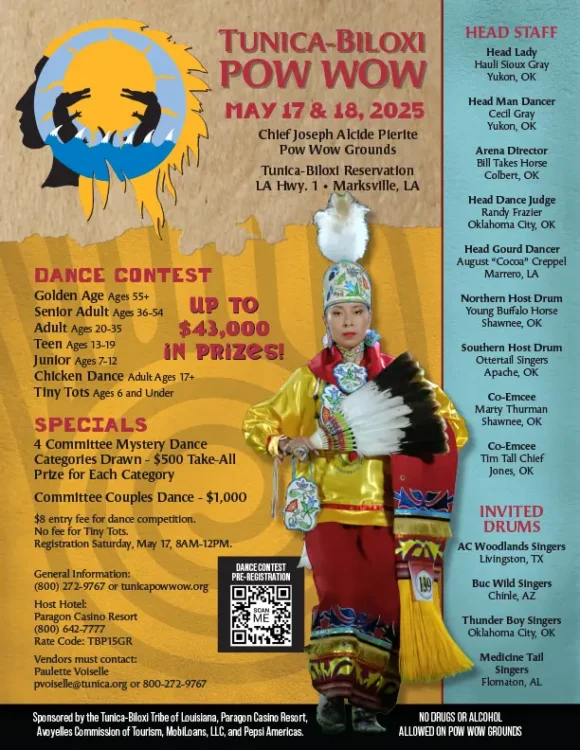
For photos of last year’s basketry summit, click here.
For a photo of special guest, Nan MacDonald, click here.
For a video from the 1st Annual Basketry Summit, click here.
Marksville, LA – (Oct. 26, 2020) – The Tunica-Biloxi Tribe of Louisiana’s Language and Cultural Revitalization Program (LCRP) will host its 5th Annual Intertribal Basketry Summit on Saturday, Oct. 31 via Zoom from 10a.m. to 12 p.m.
The LCRP aims to keep Tribal citizens connected with traditional artisans and the community, which is why the 5th Annual Basketry Summit will be hosted as a two-hour virtual weaving session. The goal of the Summit is to educate the community and younger generations on the history and culture of the Tribe through interactive, live demonstrations showcasing the unique designs the tribes are known for in an effort to keep the ancient art of basket weaving alive.
“Even though the COVID-19 pandemic won’t allow us to gather in-person for this special annual event, we are still excited to gather virtually to learn from our neighbors and come together as a community,” said John Barbry, Director of the Language and Culture Revitalization Program within the Tunica-Biloxi Tribe. “There is so much to be learned about our unique Native American culture and this event is the perfect way to celebrate our shared heritage to ensure the traditions and craft of basketry lives on for generations.”
Tunica-Biloxi Tribal citizens, as well as weavers from neighboring American Indian communities will demonstrate southeast basket traditions using long leaf pine needles, river cane and palmetto. Nan MacDonald, master weaver and cultural consultant working with the Coquille Indian Tribe on the southern Oregon coast, will be the guest presenter. Nan will be joined by Mr. Kent Rilatos, a citizen of the Confederated Tribes of the Siletz Indians and board member of the Siletz Tribal Museum, for the presentation. Together, the two will present about Bear Grass to explain it’s vital role in Pacific Northwest Culture and how it has been gathered and used for generations for making patterns on fine basketry, adornment on ceremonial regalia, necklaces and bandoliers.
Basketry is an enduring and distinguishing indigenous art form. For years, many Tunica and Biloxi weavers made baskets from local plants, such as dyed river cane, and sold the baskets, or lƆhka (in Tunica), for income. Each element of the weave and design are steeped in the history and heritage of the Tribe. The Annual Basketry Summit is just one of the many ways that the Tunica-Biloxi Tribe works to preserve its culture.
The event is free and open to the public. Participants are responsible for sourcing their own basket making materials which can be found here. All weavers and observers must have their own computer device with a camera and microphone to participant and are encouraged to register in advance by contacting Jessica Barbry, jabarbry@tunica.org, (318) 240-6469.
###
About the Tunica-Biloxi Tribe of Louisiana:
The Tunica-Biloxi people first appeared in the Mississippi Valley. In the late 1700s, they settled near Marksville, where they were skilled traders and entrepreneurs. Today, the Tribe has more than 1,200 members throughout the United States, primarily in Louisiana, Texas and Illinois.
The Tunica-Biloxi Tribe received federal recognition in 1981 for its reservation within the boundaries of Louisiana. The tribe owns and operates the Paragon Casino Resort, the largest employer in Central Louisiana. Through its compact, negotiated by the late Tribal Chairman Earl J. Barbry Sr. and the State of Louisiana, the Tribe has assisted local governments in the area with its quarterly distribution of funds, totaling more than $40 million over two decades. For more information about the Tunica-Biloxi Tribe of Louisiana, visit www.tunica.org and “like” us on Facebook.

